- Home
- Brian Falkner
Task Force Page 19
Task Force Read online
Page 19
In the water, Yozi began to swim toward the buoy.
Alizza stood up, grinning his terrible gap-toothed smile, actually pleased, Price thought, to see Monster again.
That was when she noticed the blood pouring from cuts in Monster’s shoulders and arms, and the way he held his right hand. The explosion had not left him unscathed.
Alizza advanced toward him, still grinning. “The last time we met,” he said, “you had the advantage of surprise.”
Monster did not smile back. “The last time we met, I held no anger for you,” he said.
“This time you are angry?” Alizza looked from Monster to Price, then back again. “Ah, so this is your paired female.”
Monster flared his nostrils but said nothing. He did not deny it.
Price scrabbled for the sidearm that should have been in her leg holster, but it was gone. So was the holster, torn away by the blast or the slide along the roadway. So was most of the leg.
“The last time we met,” Monster said, “it was within my power to kill you, and I chose not to.”
“The last time we met”—Alizza grinned—“I did not have a knife.”
He reached to his belt and withdrew a bzuntu, a jagged war knife, which he raised and tossed from hand to hand expertly.
“Everything will be as it should be,” Monster said.
“On that we both agree,” Alizza said.
Again Chisnall tried to maneuver back to the dam, this time weaving the boat from side to side, trying to throw the Bzadian gunners off their aim. There was no way. Bullets stitched a line of holes across the gunnels and he spun the boat around, heading back out of range.
Yozi reached the makeshift buoy. He clutched at the nearest of the bottles bobbing on the surface of the water. He put his head under the water briefly.
Chisnall picked up the detonator.
He flicked his comm onto the command channel.
“Task Force Actual, immediate interrogative. What is your status?”
Desperate cries and shouts came amid heavy fighting on the other end before a breathless voice came on. The radio cut in and out, giving him only a few words at a time.
“Can’t get through … retreating …”
“Task Force Actual!” Chisnall yelled. “Are you clear?”
“Negative, Angel One … retreating … Give us fifteen minutes.”
Yozi’s head came up again and flicked around, looking directly at Chisnall.
“Fifteen minutes, Angel One. How copy?”
“Solid copy, Task Force Actual,” Chisnall said. He copied them all right. The problem was he didn’t have fifteen minutes.
“Gotta blow it, Chisnall.” The Tsar’s voice came on the comm. “You may not get another chance.”
“LT, the entire task force is trapped in that valley,” Wilton said.
“It’s not about the task force,” the Tsar said. “It’s about the human race.”
“Barnard?” Chisnall cried out desperately.
“It’s your decision, Ryan,” Barnard said.
“I can’t …,” Chisnall said.
Yozi’s feet kicked up into the air as he dived below the surface of the water.
Monster was kneeling over her, saying soothing things, although Price could not make out the words. The weeping had stopped now. She was shivering, from shock and fear, but his presence made it seem that things would be all right, that there was still hope.
He held a knife, a jagged bzuntu blade, and it was dripping with blood. She saw him toss it over the side of the dam.
He was examining what remained of her leg now—she sensed that rather than saw it—and there was a feeling of pressure, through the pain. Then his arms were around her, picking her up, and she had just enough strength left to nestle her head into his shoulder. She felt warm and safe as the great darkness drifted over her and the pain floated away. Price smiled, because Monster was right—everything would turn out exactly the way it was supposed to be.
Yozi had been underwater for only a few seconds, but that was all it would take. If he followed the rope down to the bomb, it would take him just a few seconds to disarm it or detach the C4 from the fuel cell.
Chisnall flicked off the detonator safety catch. There was no choice. There never had been a choice. He pressed the switch that would begin the detonation sequence.
A deafening silence spread across the lake.
Chisnall looked at the switch, fighting the urge to press it again. That would do nothing. The sequence had started, but the charge by the gates of the dam had not detonated. The explosion the professors had said was necessary for the plan to succeed.
As he watched, Yozi surfaced, clutching the aerial wire. In the end it had been simple for him. He had simply removed the aerial from the satchel. There was no way for the radio signal to reach the bomb, ten meters underwater.
Yozi had won.
The Bzadians had won.
The human race was finished.
A roar from behind had Chisnall spinning around to see a waterspout rising into the air in the center of the lake. A second, more muted explosion closer to the dam resulted in nothing more than a rapid bubbling of the surface, like boiling water. The charge was too deep to create a waterspout. Of the third explosion he could see and hear nothing and could only assume that it had gone off.
His boat lurched into the air, rolled upward by a huge mound of water, traveling at high speed toward the dam. The boat plunged down into the trough behind the wave, only to climb skyward again on the next wave. The next wave was taller, closer to the surface, Chisnall realized, and therefore faster. He could see it closing in on the first wave; then he dropped into the chasm behind it and a moment later rode the third, highest and fastest of the waves, the boat almost launching itself upward, the propeller buzzing madly in thin air before the boat crashed back down for a third time.
“Look at the dam!” It was the Tsar’s voice.
Chisnall twisted back. The small bay was dry. The water had receded, sucked out of the “funnel” by the approaching waves.
Chisnall was flung to the floor of the boat, his hand wrenched from the tiller of the outboard motor. He raised himself up in time to see the three waves arriving at the mouth of the funnel, converging into one. Then he saw Yozi.
The Bzadian was visible behind the rising curve of the water. As the water had receded, it had sucked him out with it. He was close enough for Chisnall to see the expression on his face. Confusion, turning to horror, then fading into resignation as the monster wave picked him up like a piece of flotsam.
The water was a living thing, a giant serpent, drawing back its head, then striking with unbelievable speed and ferocity at the dam, funneled by the concrete walls and the slope of the dam embankment.
Yozi disappeared, swallowed by hundreds of thousands of tons of water in that initial fist of destruction.
Chisnall realized that Barnard’s Stanford pals had got it wrong. Very wrong. Although Chisnall had no way of knowing it, what the professors had failed to take into account was the reflection of the shock wave from the lake floor. Not one, but three reflections from three different explosions. Those reflected shock waves compounded the effect, amplifying the force of the water by more than three times.
The power of millions of tons of lake water clenched into a fist that punched at the gates was greater than anyone imagined. They had hoped for one gate to give way. What happened was way beyond anyone’s expectations. The flat bulkhead gates gave way first, crumpling like aluminum foil. The huge curved main gates tried to resist, but it was futile. The ram of solid water smashed the massive triangular pivots from their concrete mounts and the gates became projectiles, popped out like peas from a peashooter over the slipway below.
Still the water was not satisfied. It exploded upward at the concrete wall and the roadway that ran across the top of the dam, pulverizing it, turning solid concrete into dust and crumbs.
Yozi’s squad would have seen the water rec
ede. Some of them might even have known what that meant, although it was doubtful. Bzadia was a desert planet, and a planet without oceans knows no beaches, no tsunamis. In any case there was no time. No time to run. Perhaps a little time to pray, but no more than to say Azoh! Then they were gone, tiny bits of flotsam and jetsam amid the great concrete boulders and turgid, spouting waters that poured over the gap in the dam where the gates used to be. But poured was the wrong word. Pour is something that water does from a tap. This was more akin to a fire hose, the water spurting, jetting, gushing in a horizontal line from the dam.
On the roadway to the left of the dam, Chisnall saw a figure emerge through the swirling smoke. Monster, battered and blackened, carrying a body in his arms. With a sinking feeling he knew it must be Price.
“Angel One, this is Task Force Actual. What the hell was that?” Fairbrother didn’t wait for a reply. “Chisnall, we are not clear! I repeat, we are not clear!” The voice disappeared but came back on the channel before Chisnall could respond. “Oh my God …”
Then there was silence on the comm.
The full knowledge of what he had done hit Chisnall like a punch in the stomach.
“LT, get out of there!” Wilton yelled.
That was when he realized that he was going backward. Slowly but surely, the hungry gap in the wall of the dam was sucking him in.
He twisted the throttle and the boat surged ahead, but already the grip of the water was much stronger and the boat continued to swirl toward the hole in the dam. He jammed the throttle to full and for a few seconds he made progress before the remorseless flow again pulled him back.
“Steer to the side!” the Tsar yelled.
He did, but it was a halfhearted attempt. The rapid gurgling rush of water out through the broken dam sucked him in; the hunger of the beast for the one who had set it free could not be denied.
He tried to get around the edge of one of the concrete arms, to escape the funnel that was channeling the waters, but then he thought of the faces of the soldiers, men and women, American, Canadian, German, and Russian, still trapped in the valley below. He saw Monster carrying Price’s lifeless body along the top of the dam embankment.
An overwhelming tiredness came over him.
His hand slipped from the tiller. Immediately, the straining engine settled down to an idle.
Like a bubble in a bath, gurgling down the drain, Chisnall felt himself pulled faster and faster.
He shut his eyes.
He waited.
Barnard watched in horror as the boat, now merely a toy amid the raging waters of the lake, was sucked toward the hole in the dam.
“Chisnall!” she screamed, but he could never have heard her, even on the comm, above the roaring of the water.
The boat spun in a small circle for a moment, caught in an eddy, then whirled out and hurtled over the side of the dam, disappearing into a torrent of water moving with such power and speed that it seemed like solid concrete.
A few scraps of debris that might once have been part of the boat appeared but were quickly sucked back in by the greedy maw of the water.
“Chisnall,” Barnard said again, but there was no longer any urgency in her voice.
26. THE FLOOD
AT THE ACOG COMMAND CENTER IN THE BASEMENT OF the Pentagon, General Elisabeth Iniguez, commandant of the US Marine Corp and the instigator of Operation Magnum, watched the incoming satellite feeds with horror.
General Harry Whitehead stepped up beside her and put his hand on her shoulder.
The high-resolution satellite imagery showed clearly the bursting of the gates at the Wivenhoe Dam and the resulting destruction.
The waters scythed and twisted through the countryside, creating a turbulent maelstrom that ate everything in its path. It sucked trees right out of the ground. It swept up boulders that hadn’t moved in thousands of years and hurled them like skipping stones. The river had no hope of containing the thunderous waters in its slender banks. The waters arced into the air in great long geysers before spreading out across the flat farmland.
That was merely an illusion. The incredible energy contained in the water had been spread but not diminished, and it reached the fuel plant at 11:43 hours with ferocious anger.
The vast concrete bunkers, which could have withstood direct hits from tomahawk missiles, shuddered under the barrage, water spraying into the air as the fury of the dam vented itself against the round Bzadian buildings.
Massive oak trees, wrenched out by their roots, battered at the concrete, while the water clawed and dug at the very foundations they rested on.
The first building to give way was a fuel laboratory at the northern end of the complex. The force of the water had brushed the high double fences protecting the plant aside and the chain-link metal wrapped itself around two of the buildings. Log after log slammed into the fence, trapped until a huge boulder rammed into the front of the building, smashing the wall, and the concrete roof of the building began to lift. The waters punched underneath, lifting the immense slab into the air like a toy boat floating on a stream and slamming it down onto the building behind it. That structure, a piping station, collapsed as the two slabs destroyed each other, chunks of broken concrete thrust along in the hurricane of water and smashing into the buildings behind them.
Over and around them the floodwaters spewed and spat logs, boulders, and broken chunks of concrete.
At 11:53 hours a mass of concrete, metal, and wood pummeled down on the largest building at the southern end of the plant. It was a warehouse, packed with fuel cells, waiting for distribution to the Chukchi Peninsula.
The wall collapsed and the unstoppable force poured inside.
Fuel cells, smashed against each other with incredible speed and force, exploded.
The explosion rippled through the cells in a chain reaction. One moment there was a wall of water tearing toward the soldiers of the task force; the next moment the sun came out.
General Iniguez flinched as the satellite imagery completely whited out for a second. When the pictures resumed, there was no visibility at all, just a massive cloud covering the scene. It was a huge cloud of steam, water vaporized by the heat of the explosion. It obscured the area for the next twenty minutes.
The blast was a momentary pause; then the waters rushed back in to fill the vacuum, even more viciously this time, as if angered. Bzadian forces in the area were obliterated. Any who survived the initial shock wave had no chance against the murderous hunger of the waters. On the southern side of the town, the ACOG joint task force fared no better. Stunned by the initial shock wave, they had no protection against the sudden ocean that appeared where a river had been.
Twelve thousand fully armed combat soldiers started the operation.
There were no survivors.
27. ANGELS
[1200 hours Local time]
[Lake Wivenhoe, New Bzadia]
BARNARD WATCHED AS MONSTER CARRIED THE MANGLED body down from the dam wall. He laid Price on the back tray of the quad bike and strapped her in place. The lower half of one of her legs was missing, and a makeshift tourniquet was still tightly strapped above the knee.
Wilton was nearby, his hands by his sides, his coil-gun still held loosely in one hand. He was looking in the other direction. Refusing to see.
The Tsar sat on the ground, his head in his hands.
Monster’s eyes met Barnard’s. “Chisnall?”
Barnard shook her head.
Monster’s face was emotionless. He threw a leg across the bike and pressed the starter, which whined and spat before roaring into life.
Barnard moved over and put a hand on his arm. “She really liked you, you know,” she said.
“We must move north,” Monster said. “Try to get to extraction point.”
He kicked the bike into gear.
“I think she would have wanted you to know that,” Barnard said.
“Price is tough son of britches.” Monster pointed backward with a thumb
. “Is not dead yet.”
A voice came from the back of the bike. “Yes, I bloody am.”
END NOTE
THE ANGELS CAME HOME.
The escape of the Angel Team over the weeks that followed Operation Magnum is the stuff of legend, and the team’s use of SERE (Survive, Evade, Resist, Extract) training to avoid being captured by Bzadian forces is a textbook case of survival behind enemy lines. It is still studied in military schools all over the world.
Eight days after Operation Magnum, the remaining members of Recon Team Angel reached the coast of Australia and activated an emergency beacon. They were picked up by the USS Morgan Stanley on January 10 and were back at Fort Carson less than a week after that.
The survival of Sergeant Trianne Price, despite the loss of a leg, is regarded as something of a modern miracle, but in reality is a tribute to her toughness, determination, and the constant medical care provided by Specialist Janos (Monster) Panyoczki.
Opinion on Operation Magnum has shifted over time. Most historians now regard it as a military success, a noble sacrifice that gave the Free Territories enough time to rebuild and reinforce their defenses in preparation for the coming Ice War. It was a turning point in the Bzadian War.
The instigator of the operation, General Elisabeth Iniguez, saw things differently. She resigned as the commandant of the US Marine Corps immediately after Operation Magnum.
The court-martial of the Angel Team also caused bitter debate on both sides, but all surviving members were exonerated of any wrongdoing. Still, there was intense pressure from the public to disband the team. Already uncomfortable with the concept of the Angels, it took a negative view of the operation, with its high cost of human lives.
Under such public pressure, ACOG military commanders had no choice.
On March 1, 2032, the Recon Team Angel and Recon Team Demon programs were officially shut down.
Unofficially? That is a different story.

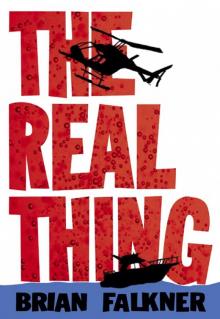 The Real Thing
The Real Thing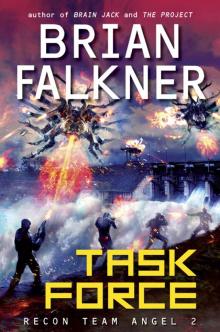 Task Force
Task Force The Flea Thing
The Flea Thing The Project
The Project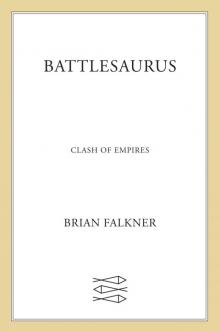 Clash of Empires
Clash of Empires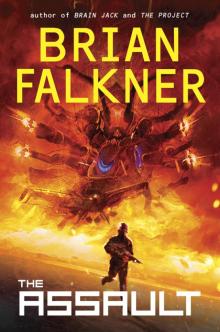 The Assault
The Assault Brain Jack
Brain Jack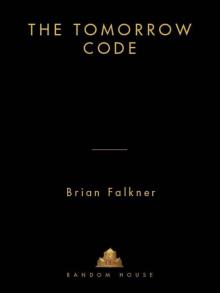 The Tomorrow Code
The Tomorrow Code Vengeance
Vengeance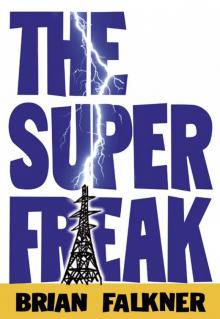 The Super Freak
The Super Freak Northwood
Northwood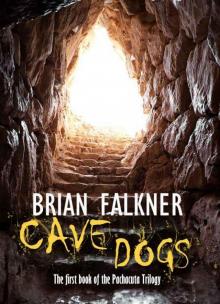 Cave Dogs (Pachacuta Book 1)
Cave Dogs (Pachacuta Book 1) Maddy West and the Tongue Taker
Maddy West and the Tongue Taker